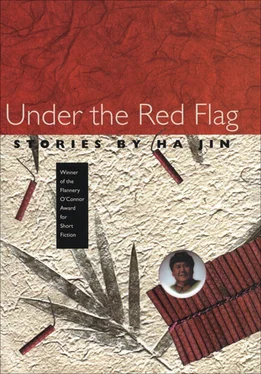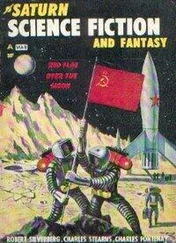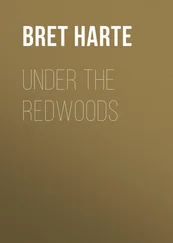The following day at dinner Lei again wanted to drink from Jia’s cup. Liquor was too strong for him, so Jia poured some apple wine into a cup that was as tiny as the bowl of a pipe. Lei liked the wine better because it tasted sweet. Every day he drank a cup and soon became Jia’s wine buddy. Jia would smile and say, “Little Lei, you’re lucky, Uncle have money and can buy you wine.”
“Yeah,” the boy would reply.
Sunday came. Jia had not yet decided whether to go to his mistress. During the day he was busy shooting and developing pictures at the photo shop, and in the evening he spent a lot of time playing with Lei, so he had forgotten to think of what gift he should take to the woman. Now he felt at a loss wondering if he had to see her so soon.
After breakfast he made up his mind not to go. Instead, he took the boy to the country fair. Swaying rhythmically with Lei on his back, Jia turned into Main Street and walked to the marketplace. Near the entrance of the army’s clinic he met Meng Long, the head of the town’s slaughterhouse, who was sitting on a rock and basking in the sun. Meng rose to his feet and asked, “Who’s this, Old Jia? A nephew or a relative?”
“A little friend,” Jia said, smiling awkwardly. “His father is on Great Gourd Island, so he stays with us.”
“Little fella, how old are you?”
“Dwo.”
“He’s big for two,” Meng said, and patted Lei on the back.
“Yes, he’s a good boy. We’ve got to go to the fair, Old Meng.” Jia turned to Lei and said, “Say goodbye to Uncle Meng.”
“Bye.” The boy’s white fist wheeled back and forth like a fat mushroom.
On such a fine summer day the fair was always crowded. The peasants from nearby villages were eager to sell their produce to get cash for groceries, which they could buy at the same place. Many kinds of craftsmen gathered here too: cobblers, blacksmiths, tailors, locksmiths, tinkers, knife grinders. Jia didn’t want to buy anything, and he merely walked about and asked prices, comparing them with those of the year before.
“How much for an egg?”
“Seven fen. Buy some, Uncle.”
“No, no.” He continued to walk.
“What’s the price for the crabs?” he asked, passing a fish stand.
“Ten for a yuan. Buy a dozen or two, Uncle Jia. They’re fresh, caught this morning,” the young vendor said.
“No, they’re dead already.”
Many people in the country knew Jia, for he was the most experienced photographer in the commune. Whenever they wanted to have a family picture taken, they went to his photo shop.
Jia noticed that quite a few young women he had never seen before carried baskets filled with vegetables, fruits, eggs, meat. They must have been the wives of some officers transferred to the Garrison Division recently. Most of the women were pretty and dressed well, and they didn’t take the trouble to haggle. A slim young woman passed by with tomatoes in her basket, leaving behind a whiff of perfume that smelled of fresh apricot. Jia was wondering whether he should ask one or two of the young wives to sit for a large sample picture.
“Egg, egg,” Lei sang in a small voice.
Jia turned around but saw no eggs. Then, following Lei’s finger, he found a pile of potatoes on the ground. He couldn’t help laughing.
The young vendor raised a potato and asked, “Little brother, you say this is an egg?”
“Egg, egg,” Lei chanted as if to himself.
All the grown-ups around laughed. Jia explained, “He has never seen that.”
“How about this?” a middle-aged man asked and showed Lei a large tomato.
“Egg, red egg.”
People laughed again and the crowd was getting larger.
“My goodness, everything round is an egg,” a young woman said loudly, and took a small pumpkin out of a gunnysack. “How do you call this, boy?”
“Egg, big egg.”
The burst of laughter bewildered Lei, who looked at Jia in silence. “Stop teasing him,” Jia shouted at the grown-ups. “He’s not a monkey. What’s so funny? Did you call everything right when you were just out of your mother’s belly?”
Hurriedly he carried Lei away to a wall at the roadside and put him to the ground. “Those are not eggs, Lei,” he said. “They’re potatoes and tomatoes. The biggest one is called a pumpkin.”
The boy stared at Jia with tearful eyes and puckered up his lips. He closed his eyes, crinkled his nose, and was about to cry. “All right, all right,” Jia said and took him into his arms, “it’s Uncle’s fault. I didn’t tell you their names beforehand. Don’t cry. Lei’s a good boy. Let me buy you a popsicle.”
Lei also saw the old woman pushing a popsicle cart over, so Jia’s words calmed him. Jia handed a five-fen coin to the woman and said, “One, please.”
“Milk or red bean?”
“Milk.”
Lei was sucking the popsicle. With amusement Jia watched him moving the ice around his mouth clumsily. He didn’t try to help him, for fear Lei would be upset again. Let him enjoy himself that way. “Good?” he asked.
“Yeah.” Lei stuck out his tongue, licking his lips.
Carrying the boy in his arms, Jia was making his way through the crowd back to the entrance of the market. Piglets screamed and cocks crowed, while butchers were chopping pork noisily at meat stands. A group of children surrounded an old deafmute woman who was using her fingers to bargain with an egg vendor. Beside the stand of jellied bean curd some old men sat on benches drinking tea and playing chess. In the shade of elms and locusts a few youngsters were reading picture-stories they rented from a bookstand. It was getting hot, and Jia began to sweat.
“Fresh jellyfish, ten fen a bowl,” an old woman cried.
“Lei, let’s have some jellyfish, all right?” Jia said.
The boy nodded. They went over and sat down at the stand. Jia bought a large bowl and a small bowl of sliced jellyfish spiced with parsley, leeks, and sesame oil. He started eating, while Lei would do nothing with the dish but stir it with a pair of chopsticks. Jia picked a piece of jellyfish from his own bowl and inserted it into Lei’s mouth. The boy spat it out immediately.
“Don’t like it?” asked Jia.
“Nah.” Lei went on drumming the table with the chopsticks.
“Kids don’t like jellyfish in the beginning,” the woman said. “By and by they’ll get used to it.”
“Ha, you two are here.” Ning emerged from behind, carrying a basket of eggplants and green beans. “I’ve looked everywhere and couldn’t find you. Why did you stay so long? Is he all right?” she asked, pointing at Lei.
“He’s fine,” Jia said with a grin. “He likes looking around with me.”
“Let’s go home. It’s getting too hot,” Ning said, and picked up the boy and kissed him on the milky lips.
“Let me carry him.” Jia got up.
His wife put the child on his back. She had bound feet, and the vegetables were heavy enough for her. Together they were walking back. On the way home they never stopped talking to the child, asking him questions and teaching him to name things. Ning remembered that her husband and she had not walked together on the street for at least nine or ten years. He always felt embarrassed walking with me, she thought. How happy he looks now, and even younger. This boy is a little devil and has caught his old heart. If only I could give him a child. He likes a house full of children and grandchildren. Too late. He should have married another woman.
Lei’s mother came every other week and took him to their apartment in the army compound for a day, but his father couldn’t return from the island so often. Strange to say, the son didn’t miss his parents at all and was always happy when he was back with the Jias again. His mother was glad that he didn’t cry when she left.
Читать дальше












